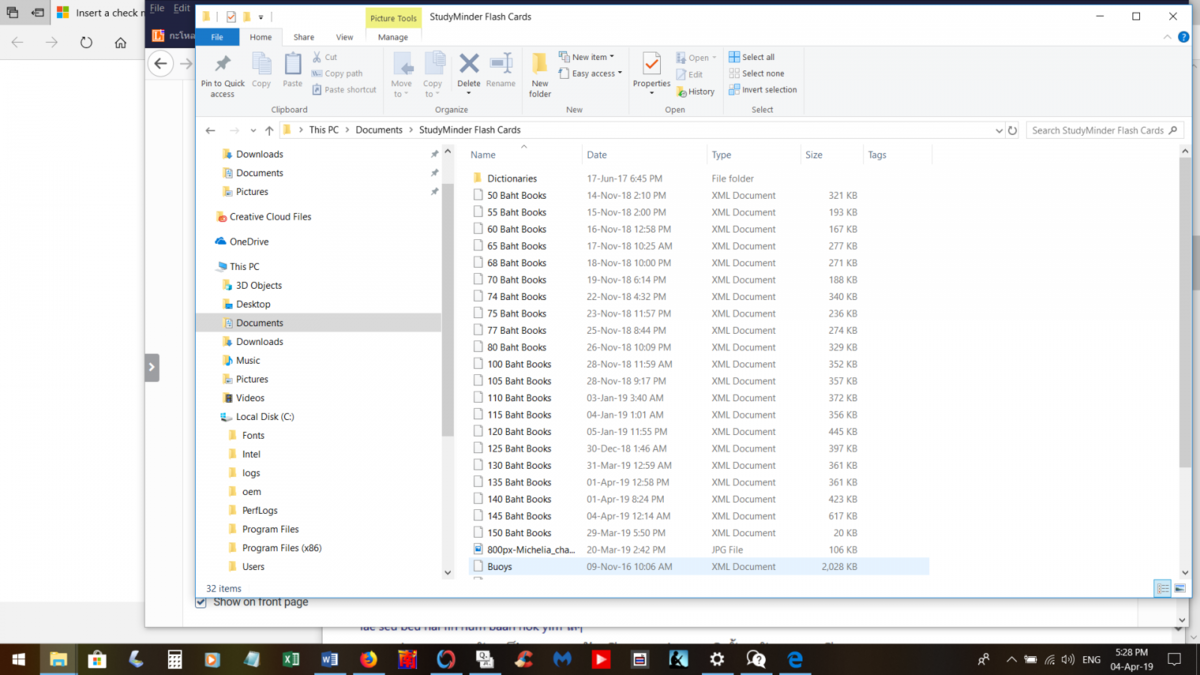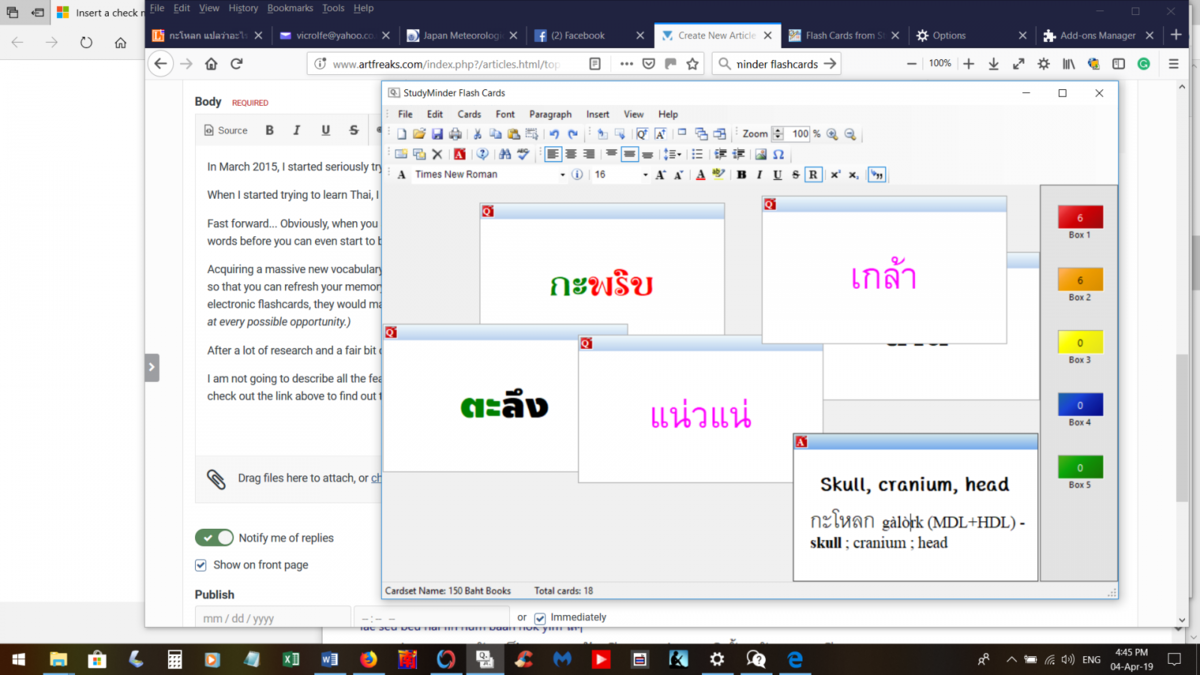In March 2015, I started seriously trying to learn the Thai language - including, (or especially,) the writing system.
When I started trying to learn Thai, I was desperate, for personal reasons, to be able to understand and communicate in the written language.
Fast forward... Obviously, when you are learning a new language, you need to accumulate a massive vocabulary of several thousand new words before you can even start to be able to "get by" comfortably in the language.
Acquiring a massive new vocabulary in the shortest possible time-frame? Or, at least, keeping a record of the new words that you have learnt so that you can refresh your memory from time to time - before you end up forgetting them all?! Well, obviously, if you could make your own electronic flashcards, they would make one ideal tool for this. (Aside from continuous practice in reading and communicating in the language at every possible opportunity.)
After a lot of research and a fair bit of trial and error with other software, I finally settled on the highly customizable StudyMinder Flash Cards
I am not going to describe all the features and benefits of the StudyMinder Flash Cards electronic flashcards software here. You can just as easily check out the link above to find out the details. I will just summarize what I personally like about the software:
1. (And most importantly:) A one-time fee allows you to use the software for life. So there are no recurring subscription charges.
2. The software works offline. You just download it to your Windows-based Desktop or Laptop PC.
3. Of course, you can make your own cards with whatever information you like, on whatever subject you are trying to learn. The cards are very easy to make and they are highly customizable.
4. The software uses the Leitner Method of Flash Card Study (or the "Learning Box" system, as It is sometimes called.) This is basically the crux of any flashcard system - paper-based physical cards or any other kind. You need to be able to jumble up the cards and you need to be able to progress them through the learning boxes. Basically, what you end up doing is concentrating your limited available time for study in the most effective way. You concentrate your time on the cards in boxes 1 and 2. They are the ones you haven't learned very well yet! As the cards progress through the boxes, you spend less and less time on them. But do check the ones in Box 5 from time-to-time as this helps to improve your long-term memory retention of the information on the cards in question. The important thing here is that ANY TIME you get a card wrong, WHATEVER box it is in, it MUST go straight back to Box 1. EVERY TIME!!! (You just have to be religious with this, as the software will not do it for you...)
5. Oh... And this is the really neat thing that I like: Sharing the card sets that you have made with anyone else, (provided that they have the StudyMinder Flash Cards software installed on their own PC,) is an absolute breeze!! All you need to do is to take a copy of the .xml file for the card set in question - and give it to them!
Sorry... I am not getting any commission out of this. I just wanted to share!
The screenshot below shows the StudyMinder Flash Cards software that I am currently using, with a new set of cards for the Thai language that I have just started working on. (I generally start a new set, every time I get to around 300 cards in the previous set. )
Hmmm... 20 sets with, let's say, 250 cards in each set? That must be about 5,000 cards that I have made over the last four years. All I need to do now is to learn all of the contents!!
One small suggestion for improvement:
It would be nice to see an Android app. version of StudyMinder Flash Cards for mobile phones and the like?




Recommended Comments
There are no comments to display.
Create an account or sign in to comment
You need to be a member in order to leave a comment
Create an account
Sign up for a new account in our community. It's easy!
Register a new accountSign in
Already have an account? Sign in here.
Sign In Now